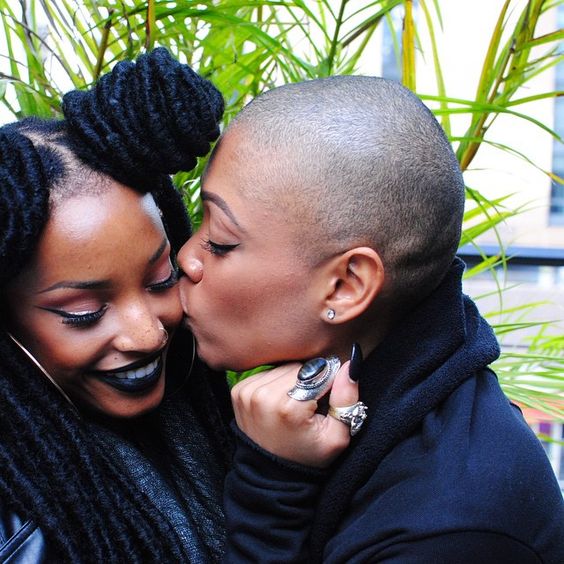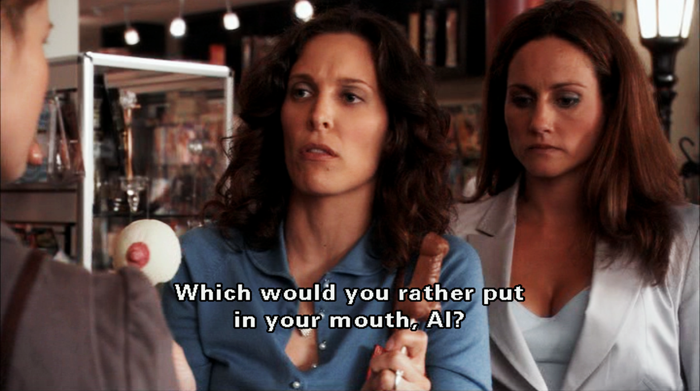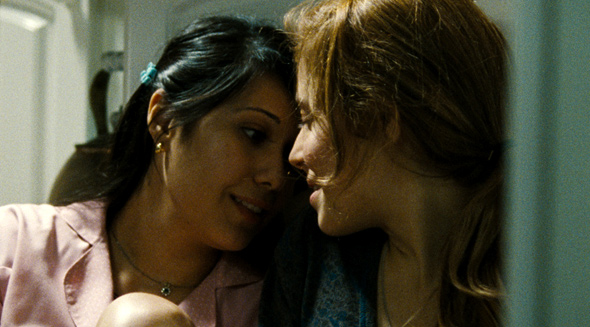Readers, I’ve got a bit of a confession: I didn’t really learn the greatest social skills as a kid. I was totally awkward, and I hung out with the same 3 or 4 kids all the time, because I didn’t really “get” the other kids. For a while I even self-diagnosed myself as autistic, before I realized how ridiculous that really was, coming from my pre-pubescent brain.
The truth is that I just wasn’t set up to be emotionally intelligent – my parents (and the schools) cared more about giving me the standard education that is sadly lacking in emotional skills. Unfortunately, it’s all too common of an occurrence, and if you don’t learn it early in life, your adult years can get really hard, really fast.
(As a side note, I’m not really sure if this is an epidemic in my generation, or if it just comes with the territory of being a younger human. I don’t really think I’ve been on the planet long enough to make that decision.)
If you’d like to get ahead of the curve and start learning about your own emotional intelligence (and how to improve it!), keep reading – we’re outlining the five key areas of the “mixed model”, as outlined by psychologist Daniel Goleman.
Key Area #1: Self-awareness.
One of the earliest steps in learning to improve your emotional intelligence is developing better self-awareness. Simply put, self-awareness is your ability to identify your own feelings, emotions, and capabilities. Self-awareness involves understanding when you need help, as opposed to when you can be self-reliant. Lastly, self-awareness means that you know your emotional triggers (regardless of whether you can control your response to them).
Thankfully, your self-awareness isn’t really that hard to cultivate. Start by keeping a journal of your emotions as they occur to you. I’m quite fond of the bullet journal method myself, but you may have a different method that works better for you. The specific method isn’t important – only the awareness.
You should also seek input from other people who know you well, because they may be able to tell you things you can’t see on your own. You might think you know yourself better than other people know you – and you’re probably right! – but still, hear them out. They have a different perspective, and if nothing else, will be able to confirm the things you’ve already discovered, and help you understand the way your actions come across to others.
Another common method of increasing your self-awareness is through meditation and mindfulness practice. I’ve actually just recently started meditating, and I can’t even tell you how much of a difference it’s made with my baseline stress and frustration methods – and it’s helping teach me how to process distractions a lot better, too. I’m telling you… It’s amazing.
Key Area #2: Self-management.
Now that we’ve dealt with your emotions, self-management describes your choice to keep those emotions from becoming disruptive. Believe it or not, we all have the ability to manage our emotions, but not everyone sticks with it long enough to make it work. Certain mental health conditions can make self-management more difficult, and in some cases maybe even impossible. In these cases, it’s best to speak with your doctor about adjusting your treatment plan as necessary.
One of the easiest ways to learn to control your emotional outbursts is to give yourself a physical shock. Pushing yourself to exercise, or giving yourself a little slap (see example) can work wonders, but not everyone is able to fully distract themselves in order to give the shock (and don’t have Cher nearby to do it for them). Don’t worry if you don’t think you’re ready for that yet – you can start by just repurposing your energy.
Most of the time, when we’re tempted to have an emotional response to something, the reasons we’re actually upset are going to tell us what we need to do to fix the problem. For example, if you’re mad that you keep losing your softball games, the productive solution would be to practice more. But first, you need to understand your own emotions – so, if you’re not ready for that yet, go back to Key Area #1 and brush up a little more.
Key Area #3: Motivation.
Motivation, by itself, is such a blanket term. Literally everyone is motivated by something. But, in Goleman’s model, “motivation” is used to mean self-motivation. People who are good at self-motivating like to do things for the joy of it, or simply because they were curious what would happen. They are motivated by the feeling of productivity, rather than the results of that productivity. Simply put, they have an inner drive.
Now, I’m going to level with you here. When I first started learning about self-motivation, I thought it was a bunch of garbage pushed to sell self-help books. After all, it’s in literally every self-help book I’ve ever read – even the very-industry-specific ones. However, once I started processing my own motivations and the things I wanted to get out of life, I understood that the things that motivate you are really just as important (if not more important) than the things you get out of a particular experience. And, it actually activates unique areas of your prefrontal cortex, which means that your motivation muscles get stronger over time.
To improve what motivates you, personally, you’ll need to do a personal inventory of your values. Your answers are going to be different than mine, different than your girlfriends, and probably completely different from everyone else’s on the planet. There are a few different methods you can use to figure out your own values, passions, and strengths – you’ll need to find the one that works best for you.
For me, a Passion Planner offers the perfect balance between my “need-to-do’s” and my “want-to-do’s”. While I understand that not everyone is a planner person, I would literally be lost without mine. (No, seriously – at any given time, there’s at least one sticky note in there with an address I need to GPS.) There’s no single system that works perfectly for everyone, though, so make sure you shop around before investing all your money in one.
The most important thing about evaluating your motivations and the person you want to become is that you need to start small. All too often, we find something that inspires or interests us, and we dive in head-first. This would be great, if humans weren’t easily overwhelmed. It’s a lot easier to start with small goals, so you build up your self-confidence (and self-awareness!) before moving onto more difficult tasks.
Key Area #4: Empathy.
We’ve dealt with pretty much everything that helps you from the inside – but empathy is about how you relate to others. Empaths are able to read the emotions of others, and process them before giving their response. This helps prevent conflict, because the person practicing empathy is taking the other person’s side of things into consideration before they say things, rather than after. You do need to have a pretty solid understanding of how human emotions work first, which is why we recommend starting with your own emotions.
Once you’ve mastered your own emotions, it’s time to shut the hell up and listen to people. The person’s position in life, relative to you or to anyone else, shouldn’t make a difference – everyone deserves respect and your judgments are most likely arbitrary. This is something that empathy will teach you over time, but until it sinks in, you’ll need to fake it.
Before you respond to someone else’s conflict, try to picture things from their perspective. Ask yourself if you’d still see it as a criticism if you were the one saying it instead of the one hearing it. Try to have a mental argument against yourself, to get a better grasp on why the other person feels the way they feel. In time, it’ll become second-nature, as long as you nurture it early on.
In order to develop your empathy, you’ll need to actually understand, and not just “know”. Catch yourself when you say the phrase “I know, but…” as this is almost always an indication that you don’t actually know what the other person is saying to you. Ask questions if you need something clarified, and do your best to treat everyone with an equal amount of respect – including yourself.
Key Area #5: Social Skills.
The final area is filled with the blanket term “social skills”. Social skills are the practical application of empathy, and included are such skills as negotiating, compromise, charm, persuasion, and conflict mediation. Since it’s such a broad group, there are a nearly-infinite number of ways to improve. Additionally, improving your other emotional intelligence areas will naturally increase your social skills, which sets you up for all the right perks in life.
Once we start looking into social skills, it’s not hard to see how your emotional intelligence pretty much determines how much success the rest of your life is going to see. It factors into all of your interpersonal relationships, including romantic, friendly, and even networking opportunities. Hopefully, now that you’ve seen how important it really is, you can start to consciously practice whenever the opportunity presents itself.
If you’re looking for just a slight leg up over the competition, there are some conscious improvements you can make to your social skills. Start by learning to identify your emotions before you deal with them. Then, once you’ve recognized the emotional trigger, find a way to relieve the negative feelings before you attempt a solution. In some cases, the emotion itself was the entire problem – in which case, congrats – you’re done with that conflict!
However, if calming down didn’t fully tackle the problem, you’ll need to be sure that you and the other person (or people) involved can agree on what the bigger problem really is. Make sure you offer mutually beneficial solutions – everyone loves a win-win situation, after all. (That’s literally what a win-win situation is.) Finally, whether you’re able to reach a fair compromise or not, be sure to end on a cooperative note. Let the other party or parties know that you’re working toward the same goals.
Why are social skills so important? Humans in general are predisposed to emotional outbursts – even when it’s against our best interest. (Spoiler alert: It’s almost always against our own interest.) But differences of opinion are often minor and only serve as distractions from your bigger goals in life. Ask yourself if you’ll remember this in five years, or even two weeks. If the answer to either is “no”, then it’s not an important issue now, either.




























































